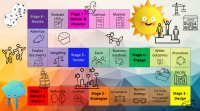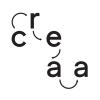
by Matthew Baqueriza-Jackson, AD-Hoc Expert for Playful Paradigm | Services and activities require Municipalities to buy goods, services and works through the process of Public Procurement, historically viewed as very bureaucratic and technical. How can we procure goods, services and works for Play and Games in a more efficient, effective and playful manner?
The Playful Paradigm Transfer Network focusses upon using Play and Games as a means of enabling inclusive, healthy and sustainable cities. Shaped by the Good Practice of the City of Udine in Italy, the Network is seeking to transfer a number of playful products, services and activities, including Toy Libraries, Games Festivals, and the development of Physical Play Space.
All of the products, services and activities require Municipalities to buy goods, services and works through the process of Public Procurement. Historically, the process of Public Procurement has been viewed quite rightly as very bureaucratic and technical and defined by European and National level legislation. Indeed, on the face of it, Public Procurement seems very far removed from the playful objectives of Playful Paradigm.
However, as part of the network, and to enable the improvement of the Good Practice of the City of Udine and the practice of the Partner Cities, we have placed an emphasis upon how we can procure goods, services and works for Play and Games in a more efficient, effective and playful manner.
Utilising the skills, knowledge and experience of our AD-Hoc Expert, Matthew Baqueriza-Jackson we have facilitated sessions on Public Procurement and have produced the ‘Playful Paradigm Procurement Guide’. The Guide provides Cities with succinct advice upon the seven stages they need to go through to procure goods, services and works for Play and Games. The Guide focuses upon both technical aspects of Public Procurement, and additionally upon how the process can be used to achieve wider local economic social and environmental outcomes.

The seven stages are as follows:
Stage 1
is about Cities reflecting upon the existing provision of the good, service or work and in particular whether the provision has been of good quality and to time. It is also about analysing the type of supplier that is currently providing the good, service or work, for example whether they are an SME or not.
Stage 2
is about Cities linking the procurement of the good, service or work to wider legislation and strategy. It is about identifying the type of procurement procedure that could be potentially used and the types of wider outcomes it could potentially contribute towards.
Stage 3
is about Cities designing the good, service or work they want to procure – this is sometimes referred to as Commissioning. Here, Cities decide upon what they want the good to look like, for example, and how much budget they have to spend.
Stage 4
is about Cities engaging with the market and particularly businesses that could be suppliers of the good, service or work. Here, Cities may want to hold events to explain to the market what they are looking to buy, and what wider outcomes they are looking to achieve.
Stage 5
is about Cities tendering for the good, service or work. It is here that they develop questions to ask the market to respond to and advertise the opportunity both locally and across Europe.
Stage 6
is about Cities making a decision on the best provider for the good, service, or work dependent upon how they have responded to the questions and the price they have offered.
Stage 7
is about Cities working with the chosen Supplier to deliver the good, service, or work effectively. It is also about monitoring any wider commitments which the Supplier may have agreed to.
We have tested the Guide with the Playful Paradigm partners and they will be piloting it further during the ongoing activities of the Network and beyond. It is important to note that the stages outlined in the Guide are not just applicable to goods, service and works procurement associated with Play and Games. Indeed, they could form part of the process for procuring any of the goods, services or works required by Municipalities and other organisations.
This article was written by Matthew Baqueriza-Jackson, AD-Hoc Expert for Playful Paradigm.

